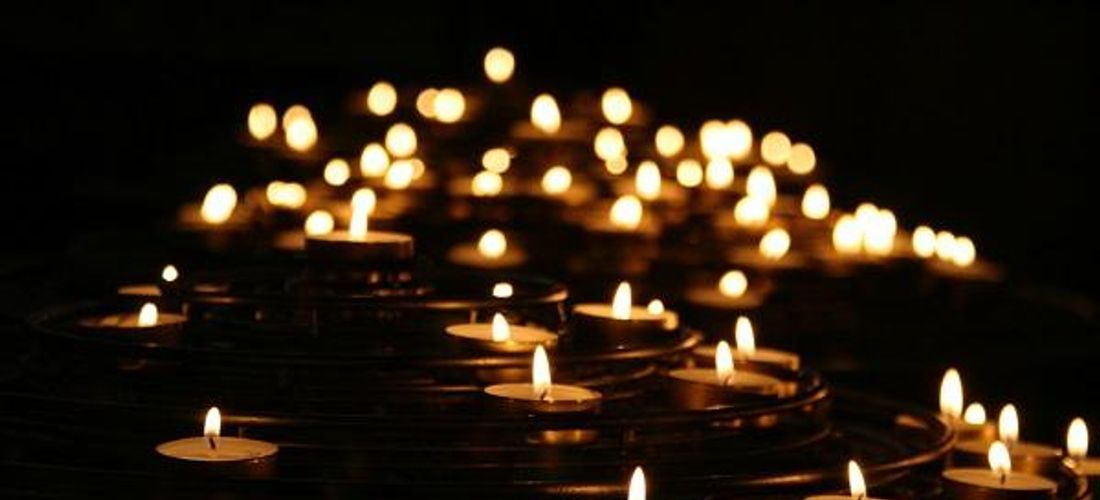The Islamic Perspective On Grief - Coping with Individual and Community Loss/Hardship
Faith
|
Aug 23, 2019
|
4 MIN READ

Grief is an inevitable fact of life, one that each person must, unfortunately, go through. Allah (S) says in Surah Al-Baqarah, verse 155, "And We will surely test you with something of fear and hunger and a loss of wealth and lives and fruits..." As long as you are on this earth, you will likely experience a loss of someone close to you.
Sometimes we face loss or are tested as a community on an immense scale. From the recent to the ongoing crisis with to the ongoing communications blackout and violence in to constant trauma faced by marginalized communities around the world to lingering fears in our houses of worship stemming from the - this has all impacted Muslims (and those who are not Muslims) around the world. We seem to face with one horrific thing after another, and it can become too easy to tamp down our grief and move on to the next thing in life. However, while it is incredibly painful, how you cope with grief impacts the healing process and life moving forward tremendously.


To grieve is to love, and the deeper one's love is for someone or for the community at large, the deeper the grief for his or her loss. When we mourn the death of a loved one, we feel raw, angry, anguished, vulnerable ... you name it. The pain can manifest in a variety of ways, and the coping mechanisms vary from person to person. There is no timeline for grief or the healing process, but the sharp pangs tend to blunt with time, though triggers can hit at any moment, seemingly out of nowhere. When son two years ago, the pain was unbearable. I still struggle with coming to terms with it sometimes, but I took great comfort in Allah (S)'s wisdom and justice when such tragedies hit, as stated in verses 155-157 from Surah Al Baqarah:
“…but give glad tidings to As‑Saabiroon (the patient ones). Who, when afflicted with calamity, say: ‘Truly, to Allah we belong and truly, to Him we shall return.’ They are those on whom are the Salawaat (i.e. who are blessed and will be forgiven) from their Lord, and (they are those who) receive His Mercy, and it is they who are the guided ones."
We also often underestimate the grief we may feel when our community goes through a terrible experience, like ongoing crisis in Muslim regions around the world, or the terrorist attack of 51 Muslims at Jummah (Friday) prayers in New Zealand, or like in December of 2014 when six gunmen attacked the Army Public School in killing 149 people, including 132 schoolchildren. Allowing ourselves time to mourn and process our feelings while reflecting upon the example of the Prophets who came before us is so crucial. That time can help us move past the paralysis of our grief into action or whatever means of moving forward. Consider this tweet from Shaykh Omar Suleiman:
But when something as devastating as the loss of a loved one hits, it can be blindsiding and the span of emotional upheaval oscillates between extremes. Who do you turn to, how do you deal with this new reality? You may wonder, "Why me?" It's comforting to remember that our own Prophet Mohammad (saw) dealt with a series of losses throughout his life – his father before he was born, his mother at the age of six, then his grandfather, then uncle, then beloved wife Khadija (R), and six of this seven children, with only Fatima (R) outliving him. Imagine that the man most beloved to Allah (S) lost so many people close to him! When his son Ibrahim died, the Prophet (S) openly:
"The eyes send their tears and the heart is saddened, but we do not say anything except that which pleases our Lord. Indeed, O Ibrahim, we are bereaved by your departure from us." Then he turned his face towards the mountain before him and said, "O mountain! If you were as sorrowful as I am, you would certainly crumble into pieces! But we say what Allah has ordered us: (We are the servants of Allah and we will return to Him; We thank Allah, the Creator of the Universe)."
This example shows us that it is OK to cry and feel saddened by a loss, even necessary I'd argue – but it is equally important to remain patient and accept that the death is a will of Allah (S) and that His plan is perfect. The sooner we are able to internalize this concept, the easier the "pill" of loss is to swallow. To be promised glad tidings of Jannah because of remaining patient is that best gift one can get. That's a reminder in and of itself that this is the nature of this life; we are but travelers passing through. In the end, we will all meet in the afterlife, where "real" life begins. Of course, there are days that are harder than others, but holding steadfast to this promise in the general sense makes it a little easier.
One of the interesting things about losing a loved one is that in its immediate aftermath, you start to see life and its transience in sharp focus. You no longer focus on the little things and realize what really matters – your own health, your family, your friends, community, etc. For me, a lightbulb went off in my head and my body screamed for me to press pause. I had been running on autopilot, commuting long hours to a job I hated, not taking time for myself or my health. The silver lining one can take during their grief is that he or she gets a deeper appreciation for Allah (S)'s immeasurable power. One day, someone that you've gone your whole life seeing is suddenly gone in an instant. It really humbles you and you suddenly feel very small in an expansive universe.

Because you also see how short life is and feel like your time is very near, too, pleasing Allah (S) and continually performing and perfecting your worship takes on greater importance, as well. May Allah (S) make us among the Sabiroon in the face of calamities and the example of our beloved Prophet (S) – a clear guide in both times of tribulations and triumph. Ameen.
Love this post? Pass it along to your friends on Fb, Twitter, & Instagram!
Have you found your strength in time of grief? Share your story in the comments below! You'll never know who you'll end up helping!
Subscribe to be the first to know about new product releases, styling ideas and more.
What products are you interested in?

